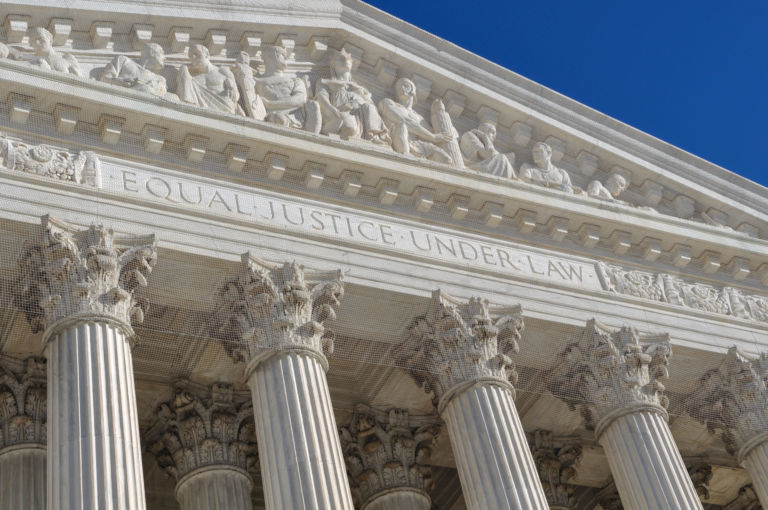Zachary Halaschak of the Washington Examiner looks into the U.S. Supreme Court’s possible decision to jettison a controversial precedent.
The Supreme Court appears poised to scrap or revise a longstanding ruling that relates to how agencies interpret ambiguous statutes, with major implications for regulations that touch many aspects of commerce.
A decision to undo the 40-year-old precedent known as the Chevron deference, or the Chevron doctrine, will have repercussions in the business world, affecting rulemaking in areas as varied as finance, healthcare, and technology.
The so-called Chevron doctrine came as a result of Chevron v. Natural Resources Defense Council, a 1984 Supreme Court ruling that courts should defer to federal agencies’ reasonable interpretations of ambiguous statutes.
Many business and industry groups say the doctrine has led to repressive regulations that are bad for business. But the federal government contends that the precedent respects courts’ authority to interpret law while also upholding the legislature’s ability to delegate power to agencies in the executive branch.
Industry groups and corporations complain that the Chevron deference makes it too easy for new presidential administrations, Republican or Democratic, to change or reverse their interpretation of federal law.
The expected reversal or limiting of Chevron could usher in a wave of litigation as corporations and groups challenge rules that have long been on the books.
The cases in question that led to the legal challenge to overturn Chevron began with fishermen upset with an interpretation of the Magnuson-Stevens Fishery Conservation and Management Act.
Essentially, the lawsuits were brought by a group challenging a National Marine Fisheries Service mandate that compels some fishing companies to pay and house at-sea herring monitors. The companies contend that Congress never authorized the NMFS to require commercial fishermen to pay for at-sea monitors.
“So, basically, having the regulated pay for the regulators,” Karen Harned, chief legal officer at the conservative Job Creators Network, said. “And from their point of view, it’s been a great case for really showing what the problems are with the Chevron doctrine.”


